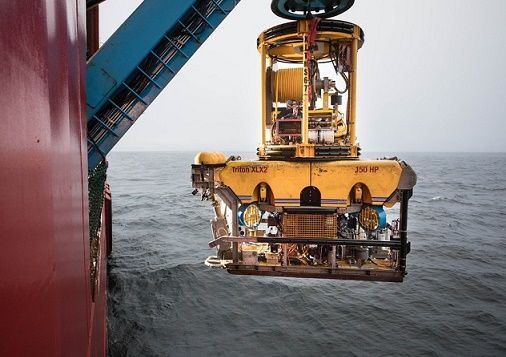In November 2011 a gas pipline was opened that stretches from Vyborg in north west Russia through the Baltic to Lubmin in Germany and passes through the territorial waters of five countries: Russia, Finland, Sweden, Denmark and Germany.
A second pipeline, dubbed Nord Stream 2, is now moving through the planning stages and there is disagreement regarding the placing of it: should it go north or south of Bornholm?
READ ALSO: Russian gas pipeline splits Parliament
In April last year, the company behind the pipeline sought approval from the Danish government to run the pipeline south of Bornholm. However, a few months later Parliament passed a law that made it possible to say no to the pipeline for security reasons, reports DR Nyheder.
Escaping gas
The company has now responded by seeking permission to go north of Bornholm – and this time, the Danish government will probably not be able to do much about it.
Michael Aastrup Jensen, the foreign policy spokesperson for Venstre, sees the move as a way of blackmailing Denmark so that it will have to approve the originally planned route, which is cheaper for the company.
“Nord Stream 2 are trying bullying tactics of the worst sort. They are trying to make it look as if whatever we do, we can’t avoid having the pipeline. We shouldn’t allow ourselves to be strong-armed in this way,” he said.
International law paramount
The waters north of Bornholm are not considered Danish territorial waters and here the international laws of the sea hold sway. According to them, Denmark would be obliged to grant permission.
“This means in practice that if Russia wants to, it can go ahead with its project,” said Martin Lidegaard, the foreign policy spokesperson for Radikale.
“It will be a bit more costly and the pipeline will be a bit longer, but at the end of the day, we can’t prevent them from doing it,” he added.
The only way the application can be refused is because of consideration for the environment or shipping lanes.
Danish politicians are now pinning their hopes on the EU. “It has important security considerations for Russia’s ability to rearm and continue their destructive policy in Ukraine and Syria,” opined Lidegaard.















